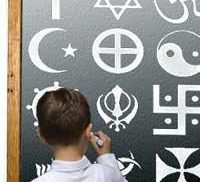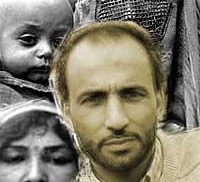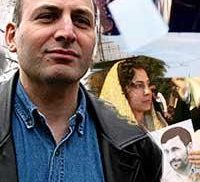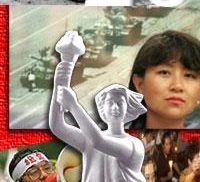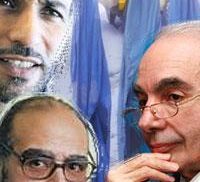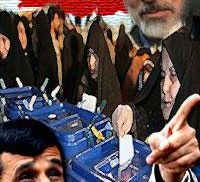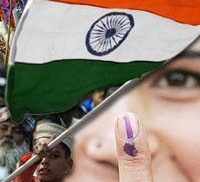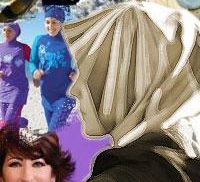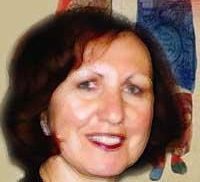This dossier stems from the debate sparked by Elizabeth Suzanne Kassab’s article—which opens this collection—on the transformation of the Arab intellectual scene after 2011. Her notion of a “new contemporary” in Arab thought prompted a series of contributions that do not aim to offer solutions, but rather to raise new questions, probe unresolved issues, and put forward critical perspectives. Bringing together Kassab’s essay and two related pieces, the dossier explores how Arab thought is redefining itself in light of the uprisings, the failures of political transitions, and the moral and intellectual rupture marked by Gaza.
Dossiers
- The Uyghurs’ revolt has at last drawn the West’s attention to these people who for decades have experienced conditions very similar to those of the Tibetans. In fact, in the Chinese region of Xinjiang, the Beijing regime is relying on the assimilation of this people who are different by language (Uyghur) and religion (Muslim). This also involves massive immigration of Han Chinese. What are the differences with Tibet? Why has the West only just noticed the existence of the Uyghurs?
- Last April 26th Berliners voted ‘no’ in a referendum that proposed to make religious instruction compulsory in schools, like the courses on ethics introduced in 2006. The majority of European countries provide religious instruction, but in twelve of them it is multi-religious. Is it possible for respect of secularism and the need to know the history and values of religions – that in recent decades have returned to dominate the public sphere – to coexist?
- During the Resetdoc Istanbul Seminars (May 30th – June 4th) prominent Muslim intellectual Tariq Ramadan reacted positively to Giuliano Amato’s call to support the women demonstrating against the Shia Family Law in Afghanistan. Ramadan has been emphasising the issue of self-criticism for Muslim scholars and has himself been critical of a literal implementation of Shar’ia: «Giuliano Amato is right. We Muslims need to take a stand – he says in an exclusive video-interview with Resetdoc – I have been doing this for the last twenty years stating that we cannot accept the literal implementation and a dogmatic interpretation of Islam. We need a sense of humility within dialogue».
- «The Iranian elections have been an astonishingly surprising experience, first of all because there has been immense participation. The outcome is a negative one for many of us and for many young Iranians, a result with no hope. There is an open clash within the nomenclature, and the government has started to solve it using violence.» In an exclusive video-interview with Resetdoc, the Iranian philosopher Ramin Jahanbegloo comments the results of the recent Iranian elections and addresses some future issues to be faced by the Iranian government and society.
- Twenty years after the massacre in Tiananmen Square, the regime has still not made known the number of victims and does all it can to ensure those events are forgotten in spite of the profound consequences on China’s social and political evolution. «In the West memories of Tiananmen are fading,» says Andrew J. Nathan, a professor of Political Science at Columbia University and co-author of The Tiananmen Papers, talking to Reset Doc. «The USA as well as Europe will be more secure when other political systems are open and stable. And the Chinese regime also in various direct and indirect ways encourages the persistence of authoritarian regimes elsewhere.»
- When the Afghan parliament approved the "Family Law for Shiites" effectively legitimising rape against women, our website published Emma Bonino’s appeal and petition to the Afghan government. Former Italian Prime Minister Giuliano Amato signed the petition and on the newspaper Il Sole 24 Ore asked why moderate Muslims such as Nasr Hamid Abu Zayd and Tariq Ramadan, two reference points for European Islam, remained silent. Abu Zayd has chosen Resetdoc to clarify his positions. Ramadan has not yet responded, but will certainly do so at the next Resetdoc Istanbul Seminars, where he will discuss the East-West relations together with other influential Arab, Israeli, American and European intellectuals.
- These are the most important elections for the world held this year, or at least for a dialogue between the West and the Islamic world. On June 12th Iranian citizens will elect their new President. Two competing factions are divided and the result is uncertain. Will we have the controversial outgoing President Ahmadinejad for another four years, or will one of the two reformist candidates, Mousavi or Karoubi, win the day?
- This year’s general election in India is numerically the largest ever held in history, with 714 million citizens (41 million more than in 2004) being called upon to vote and choose their representatives from over one thousand political parties. This is a phenomenal event that will last four weeks, until May 13th. A sign of democratic vivacity that seems, however, destined to result yet again in an unstable government, marked by opportunistic post-electoral alliances. Historian Ramachandra Guha explains why regional parties are so successful.
- The veil makes them more visible than their men and hence exposes them to racism. Traditions and prejudices do not help them and are often the first obstacles they must overcome. How is the condition of Muslim women evolving in Europe and in the Arab-Islamic world? How is Family Law changing in Arab countries? A journey at the centre of a debate that goes well beyond the female body and closely affects relations between Islam, democracy and the West.
- “The veil appears as a regression only if we assume progress to be teleological and linearly moving towards secularization”. Yale political philosopher Seyla Benhabib has discussed in Genoa the struggles over cultural identity in the scenario of contemporary Europe. In occasion of her lecture, we propose here a conversation with the Editor in chief of Reset Giancarlo Bosetti.




